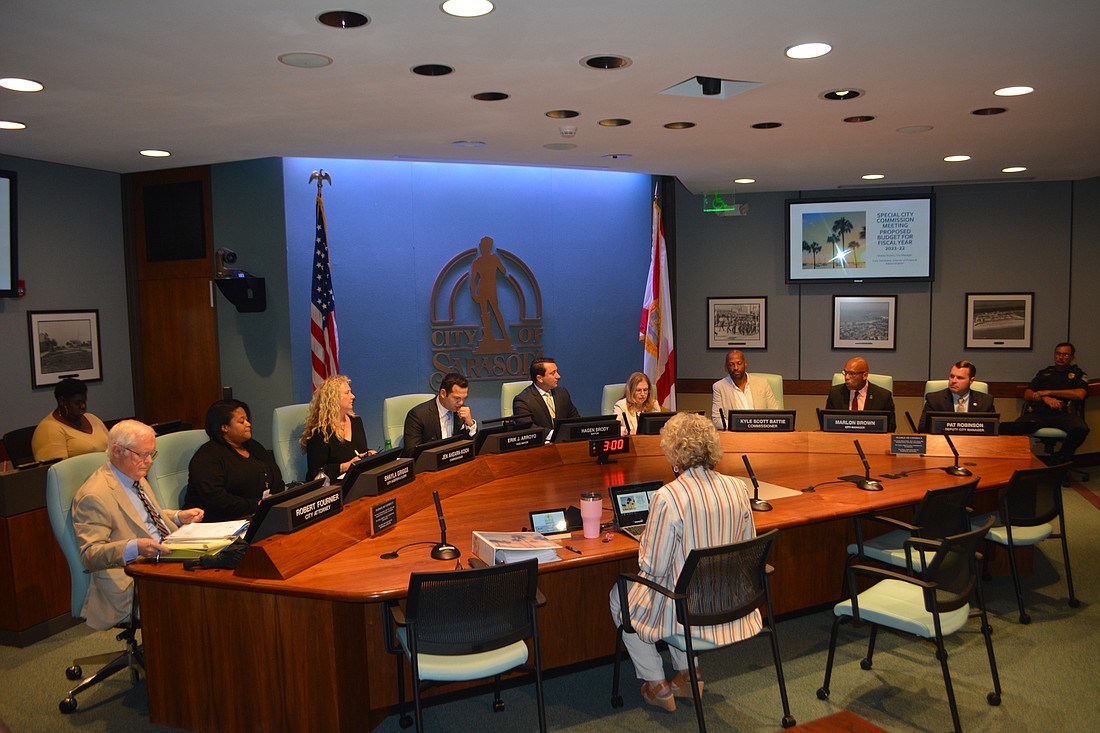- December 21, 2024
-
-
Loading

Loading

In the next fiscal year, the city of Sarasota will voluntarily reduce its general fund millage rate for the first time in decades.
That fact is a source of pride for City Manager Marlon Brown. The 2021-22 budget is the first Brown is responsible for overseeing since being promoted from deputy city manager in December, and he wants it to set the tone for how officials handle finances at City Hall.
“My hope is that this is a continuation of things to come in the future, and that we really take a look at how we manage the city from a fiscal perspective and that we do employ some fiscal restraint in a lot of the programs we would like to implement,” Brown said.
On Tuesday, after two days of budget workshops, the City Commission voted unanimously to set the maximum general fund millage rate for fiscal year 2022 at 3.1372 mills, a decrease from 3.2632 mills in 2021. One mill is equal to $1 in tax for every $1,000 of taxable value on a property. For a property with a taxable value of $200,000, the proposed general fund rate would result in $627.44 in city taxes, a savings of $25.20.
The proposed rate is the “roll-back rate” — the rate at which the city would generate the same amount of property tax revenue as it would have the previous year after accounting for property value increases. The roll-back rate does not incorporate the value of new construction.
Staff’s proposed budget for 2022 includes $233.9 million in expenditures, a $513,074 decrease from 2021. The general fund budget calls for $78.8 million in expenditures, an increase of more than $3 million.
In the proposed budget, there is a nearly $2.1 million gap between general fund revenues and expenditures. A majority of the commission indicated its support for staff’s proposal to cover that gap with money from the city’s unassigned fund balance.
Finance Director Kelly Strickland said best practices in governmental budgeting recommend having enough money in reserves to cover two to three months of operations, or 17-25% of annual expenditures. Even after covering the budget gap, Strickland said the city would have 31%.
The city’s plans for 2022 include the resumption of some spending that was put on hold in response to the pandemic and associated financial uncertainty. The city is lifting a hiring freeze and resuming its equipment-replacement program. Still, Brown noted his proposed budget was largely holding the line from the status quo, asking for no new positions and no level of service increases.
The commission offered largely positive feedback to the budget proposal, signaling few areas where elected officials would like to explore opportunities for change. Commissioners indicated a desire to have future conversations about staffing in the code compliance department, funding for special events and support for enhanced tree lighting downtown during the holidays.
The budget and millage rate must be finalized at a pair of public hearings in September.
For the third straight year, property owners will see a parks and recreation district on their tax bill — and an associated millage rate of 0.
The city created a parks and recreation taxing district in 2019, which empowered the commission to set a distinct millage rate dedicated solely to parks services. Officials saw it as a way to assure residents their tax money would go toward an important cause — and to prevent future commissions from directing parks funding elsewhere.
Establishing a millage rate for the parks district required a unanimous vote of the City Commission. That’s where an obstacle emerged: Although a majority of the board supported the district, it was not unanimous.
As a result, City Manager Marlon Brown recommended dissolving the parks district.
“We have tried twice, and we have always come up short,” Brown said. “I don’t think it makes any sense continuing the process of trying to establish that district without a unanimous vote of the City Commission.”
Ahearn-Koch and Commissioner Liz Alpert expressed their continued support for the parks district, stating it was a reflection of public input requesting improved recreational offerings.
“This is not something we all just decided, five people,” Ahearn-Koch said of the creation of the district. “This came really from the grassroots of the community.”
Brody, who has opposed the district during his time on the board, said he thought the mechanism added an unnecessary complication to the city’s budget.